Lost Angel

Brief Synopsis
Cast & Crew
Roy Rowland
Margaret O'brien
James Craig
Marsha Hunt
Philip Merivale
Henry O'neill
Film Details
Technical Specs

Synopsis
Immediately after a baby girl is discovered on the steps of a New York City orphanage, a matron notifies Professor Peter Vincent at the Institute of Child Psychology of her arrival. Vincent and his colleague, Dr. Woodring, examine the infant and, satisfied that she is "perfect," take her to the Institute, where she becomes the subject of a long-term experiment. Over the next six years, Vincent, Woodring and fellow Institute researchers Dr. and Mrs. Catty, Rhoda Kittereck, and Professors Endicott and Richards expose the orphan, whom they have named Alpha, to a rigorous schedule of lessons and controlled play. Under the loving if rigid tutelage of the researchers, Alpha quickly learns Chinese, music, chess, math and history. When Alpha, who has never been outside the Institute's walls, turns six, Vincent invites the New York Morning Transcript to write about her, and Transcript editor Ed Vincent assigns ne'er-do-well reporter Mike Regan, a Harvard graduate, to the story. Mike interviews Alpha and, while impressed with her vast knowledge, questions whether she is happy living in a world without "magic." Alpha is both intrigued and disturbed by Mike's comments and, later that night, slips out of the Institute. With help from a policeman and some Chinese merchants, Alpha, who refers to Mike as her father, tracks the reporter to a boxing match. There Alpha asks Mike to prove his statements regarding the realness of magic, and the bemused Mike walks the girl over to Times Square. Though not thoroughly convinced that she is witnessing magic, Alpha is impressed by the sights and sounds of the busy streets. Mike, who calls Alpha "Professor," then takes her to the nightclub where his girl friend, Katie Mallory, works as a singer. Instantly jealous, Alpha snubs Katie, then indulges in her first plate of spaghetti. When Alpha asks Mike if he likes Katie more than he likes her, Mike refuses to answer, prompting Alpha to burst into tears. While Katie comforts the girl, explaining that the big-hearted if irresponsible Mike is capable of loving them both, Mike telephones the Institute. The researchers, who have been trying desperately to find Alpha, are relieved to hear she is safe, but break the news that because Mrs. Catty has contracted measles and the Institute has been placed under quarantine, Mike has to continue his babysitting chores. Mike begs Katie to care for Alpha, but, determined to teach Mike a lesson in responsibility, she refuses. Soon after Mike settles Alpha into his apartment, Ed telephones with orders to cover the prison escape of Packy Roos, a petty criminal who Mike suspects was framed for murder. Then, just as Vincent calls with a long list of instructions for Mike, Alpha vomits up her spaghetti. After the harried Mike takes off to find Packy, leaving Alpha alone, a gun-wielding Packy sneaks into his apartment. To keep Alpha quiet, the semi-literate Packy offers to read a book of fairy tales to her. Alpha soon takes over the reading chores, however, and by the time Mike returns, the two have become fast friends. Brandishing his gun, Packy tells Mike that a gangster named Lefty Moran framed him and insists that Mike go find him. The next morning, Mike returns to the apartment, empty-handed and hungry, and is forced by Katie to prepare breakfast for everyone. After six more hours of searching, Mike finally drags Lefty back to the apartment. Feeling vengeful, Packy is about to shoot Lefty when the ever-logical Alpha convinces him that he is too smart to commit such a dumb act. Instead, Packy forces Lefty to write a confession, then calls the police. At the same time, the Institute quarantine is lifted, and Vincent and the other researchers rush to collect Alpha. The researchers soon realize how much Mike means to Alpha when she breaks down in tears at the thought of leaving him. Alpha tells Mike that she loves him, but Mike, afraid of his feelings, assures her that she can live without him. Later, a guilt-ridden Mike asks Ed for a transfer to Washington, D.C., unaware that Alpha has become seriously ill with grief. Just as Mike is about to depart, Packy shows up with gifts for Alpha. Packy is disgusted by Mike's rejection of Alpha and goes to the Institute to see her. When he learns about her condition, he determines to reunite her with Mike and leaves to intercept Mike's train. Mike, meanwhile, encounters a young boy and his mother on the train and suddenly realizes he cannot live without Alpha. After rushing back to the Institute, Mike throws himself into Alpha's eager arms, and all are moved by their tearful, happy reunion.

Director

Roy Rowland
Cast

Margaret O'brien

James Craig
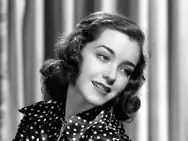
Marsha Hunt

Philip Merivale
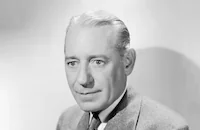
Henry O'neill
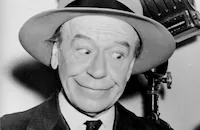
Donald Meek

Keenan Wynn

Alan Napier

Sara Haden
Kathleen Lockhart
Walter Fenner

Howard Freeman

Elisabeth Risdon

Bobby Blake
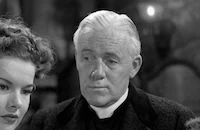
Charles D. Brown

Bobby Driscoll
Pauline Starke
Jack Lambert

Naomi Childers
Gloria Grafton
Barbara Bedford

Kay Medford

Edward Mcwade

Donald Curtis
Paul Fung
Sai King
Sen Young
Tom Yuen
Russell Gleason

Lee Phelps
Edward Hearn
William Bishop

Mike Mazurki
George Levine
Mickey Golden
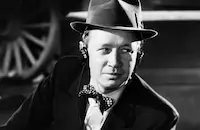
Eddie Acuff
Robert E. O'connor
Nolan Leary
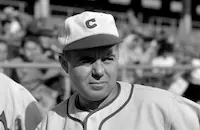
Ray Walker

Ray Teal
William Fox
Allen Wood
Hooper Atchley

Ava Gardner
Bert Roach
John Maxwell
Mary Elliott
Gerald Pierce
Al Hill

Joe Yule
Charles Sullivan
Fred Beckner
Crew
Daniele Amfitheatrof
Louise Bennett
Helen Conway
Angna Enters
Dave Friedman
Cedric Gibbons
Wei F. Hsueh
Frank E. Hull
Irene
Isobel Lennart
Cole Porter
Harry Rapf
George Rhein
Douglas Shearer
Robert Sisk
David Snell
Lynden Sparhawk
Robert Surtees
Edwin B. Willis

Photo Collections
Film Details
Technical Specs

Articles
Lost Angel
After witnessing her powerhouse dramatic performance as a British war orphan in 1942's Journey for Margaret, MGM studio head Louis B. Mayer sent word to the writing department that he wanted a script that would make O'Brien the next Shirley Temple. It didn't hurt that he also had a crush on her mother, a beautiful brunette who was the only stage mother on the lot who could get away with marching into his office and demanding more money. He allegedly even offered Mrs. O'Brien $1 million to marry him.
Theatrical legend Angna Enters took time out from her pioneering work in modern dance, pantomime, teaching and writing novels to pen the story "Mama's Angel," which became the basis for Isobel Lennart's screenplay. If it was a new Shirley Temple that Mayer wanted, that's exactly what they gave him. As in many of the earlier child star's films, O'Brien's character was so precocious and heart melting that she managed to change the lives of all who met her. And just as there was a vaguely seductive air to Temple's scenes with her father figures, so O'Brien even got to act jealous when she first encounters the girlfriend (Marsha Hunt) of James Craig's reporter. It's no wonder that when reviewing the film, the New York Times' Bosley Crowther complained that she had been "Shirley Temple-ized....Maybe little Margaret in her trim clothes and her comic-kewpie hat is closer to the American mother's ideal, but for us, she is a creature worked with strings."
O'Brien was presented to audiences with the usual MGM luster thanks to producer Robert Sisk, a recent import from RKO, where he had worked on such hits as Tom Dick and Harry (1941), starring Ginger Rogers, and Five Came Back (1939), with Lucille Ball. He surrounded her with a strong cast who could survive playing second fiddle to the moppet. The adult stars, Craig and Hunt, were talented actors who rarely received their due at MGM. Craig had been hired as a threat to Clark Gable, a position that limited him mostly to minor films that didn't exploit the early promise he had shown as the farmer who sells his soul to the Devil in All That Money Can Buy (1941). With the exception of her showcase supporting turn as Greer Garson's suicidal sister in Blossoms in the Dust (1941), Hunt was rarely used as more than a decorative presence at MGM. When she finally started breaking out as a free-lance actress, her career was squelched by the anti-Communist blacklist of the late '40s and early '50s. For the professors out to keep their child prodigy untouched by the outside world, MGM assembled a who's who of character actors, including Philip Merivale, Henry O'Neill, Donald Meek and Alan Napier, with Andy Hardy's Aunt Milly, Sara Haden, as her teacher.
Sisk also assigned some well-chosen beginners to Lost Angel. Director Roy Rowland and cinematographer Robert Surtees were just graduating from shorts at MGM. With Lost Angel, Rowland would establish his talent for directing children, which would bring him assignments on two more O'Brien films, Our Vines Have Tender Grapes (1945) and Tenth Avenue Angel (1948). He would go on to direct one of the most original children's films ever made, the cult classic The 5,000 Fingers of Dr. T (1953). Surtees would become a mainstay at MGM, where he would win Oscars® for King Solomon's Mines (1950), The Bad and the Beautiful (1952) and Ben-Hur (1959), before helping build a new Hollywood with such innovative films as The Graduate (1967) and The Last Picture Show (1971). Also new to MGM was Keenan Wynn, Ed Wynn's actor son, who had only signed with the studio a year earlier. Although a mainstay of the studio's '40s and '50s films, he had actually appeared in one MGM film of the '30s, doubling for Joan Crawford by driving her character's speed boat in Chained (1934).
Ava Gardner's unbilled appearance as a hatcheck girl hardly counts as a showcase for new talent. You have to look closely to even catch a glimpse of her but it was typical of her assignments at MGM at this point in her career. Although she had generated press coverage as Mickey Rooney's first wife, she was still a year away from on-screen billing at her home studio (she was billed earlier that year in a loan-out to Monogram for the Bowery Boys comedy Ghosts on the Loose). Her marriage to Rooney would end while Lost Angel was in production. Ironically, her father-in-law, Joe Yule, also had an unbilled bit in the film.
Of course, Lost Angel wasn't designed to promote Gardner. In promoting O'Brien, however, it was a smashing success. Despite Crowther's misgivings, it won strong reviews, particularly for its junior-league star, and justified Mayer's belief in her. Within a year, she would be voted a special Oscar® as outstanding juvenile and would receive a major pay raise from MGM in recognition of her rise to star status.
Also benefiting from the film was another child performer, Bobby Driscoll, who made his film debut as a child so adorable that the mere sight of him makes Craig aware of his love for O'Brien's character. Driscoll's mother had taken him around to all of the film studios on the advice of his barber, whose son was also a child actor. Within a few years, Driscoll's emotional responsiveness and good looks would win him a contract at the Disney Studios, where he was the first human performer ever signed to a long-term contract. Like O'Brien, he would win a juvenile Oscar® (for 1949's The Window). Unlike O'Brien, who lived a fulfilling life after her years of stardom were over, his inability to work as he grew older destroyed him, eventually leading to the drug addiction that took his life in 1968.
Producer: Robert Sisk
Director: Roy Rowland
Screenplay: Isobel Lennart
Based on an idea by Angna Enters
Cinematography: Robert Surtees
Art Direction: Cedric Gibbons, Lynden Sparhawk
Score: Daniele Amfitheatrof
Principal Cast: Margaret O'Brien (Alpha), James Craig (Mike Regan), Marsha Hunt (Katie Mallory), Philip Merivale (Prof. Peter Vincent), Keenan Wynn (Packy), Alan Napier (Dr. Woodridge), Henry O'Neill (Prof. Pringle), Sara Haden (Rhoda Kitterick), Donald Meek (Prof. Catty), Elisabeth Risdon (Mrs. Pringle), Kathleen Lockhart (Mrs. Catty), Robert Blake (Jerry), Bobby Driscoll (Boy on Train), Kay Medford (Operator), Mike Mazurki (Fighter), Ava Gardner (Hat Check Girl), Joe Yule (Tenant).
BW-91m. Closed Captioning. Descriptive Video.
by Frank Miller

Lost Angel
Quotes
Trivia
Notes
According to the New York Herald Tribune review, "theater personality" Angna Enters, who is credited onscreen with the film's "idea," wrote a story called "Mama's Angel," which was the basis of this picture. Lost Angel was Enters' first film credit. Many reviewers commented on the performance of six-year-old Margaret O'Brien, predicting that Lost Angel would launch her as a star. Some compared her favorably to child star Shirley Temple. O'Brien received a Special Academy Award in 1944 as "Outstanding Child Actress." Child star Bobby Driscoll made his screen debut in the picture. According to Hollywood Reporter, Lost Angel was voted the most popular film among the Southwest Pacific Army camps in March 1944, beating one hundred other films "by a wide margin." A Hollywood Reporter news item adds Barbara Quintanilla to the cast, but her appearance in the final film has not been confirmed. In addition, Hollywood Reporter notes that David Miller directed the onscreen band during the "I've Got You Under My Skin" number, but his appearance in the final film has not been confirmed. On June 19, 1944, O'Brien, Marsha Hunt, James Craig and Keenan Wynn reprised their roles for a Lux Radio Theatre adaptation of the film. O'Brien also portrayed "Alpha" in a October 22, 1945 Lux broadcast, which co-starred George Murphy and Donna Reed.















